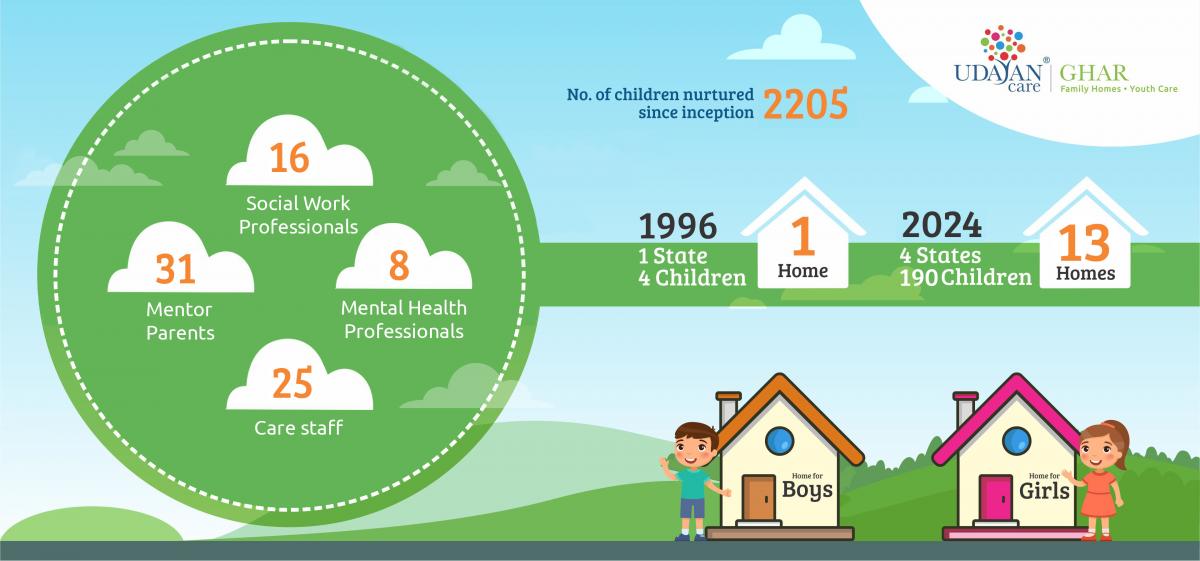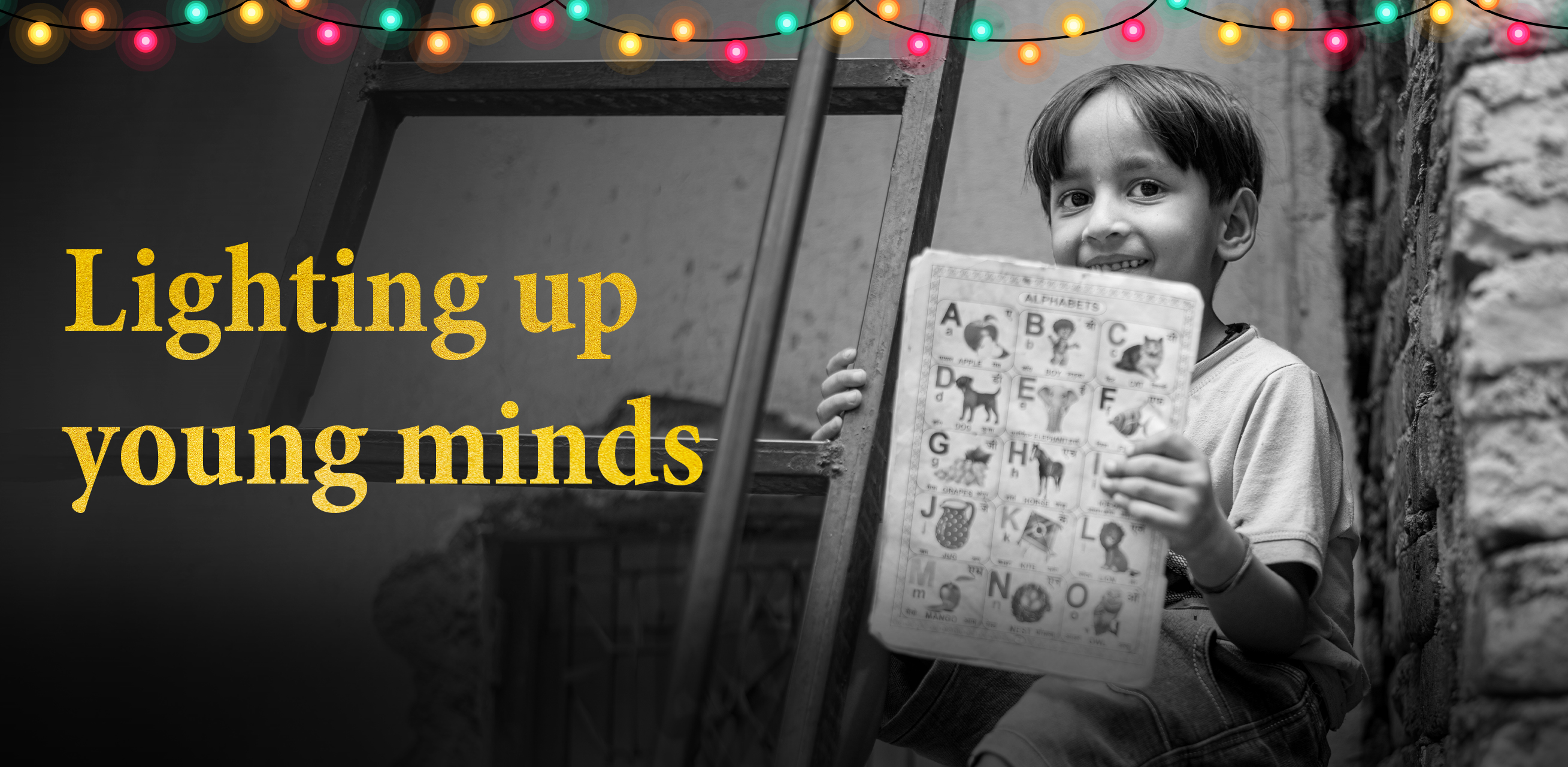“Udayan”, a Sanskrit word meaning ‘Eternal Sunrise,’ embodies the organization’s mission to bring sunshine into the lives of underserved sections of society that require intervention. Registered in 1994 as a Public Charitable Trust, Udayan Care is dedicated to empowering vulnerable children, women, and youth across 38 cities in 15 states of India. The organization began its journey in 1996 with the establishment of a small family home (“Ghar”) for orphaned and abandoned children in Sant Nagar, Delhi. Over the past 30 years, Udayan Care has expanded its efforts to support disadvantaged groups by establishing more family homes, promoting girls’ education, and providing vocational training.
At the heart of Udayan Care’s mission is the ‘Udayan Ghar Programme,’ which translates to ‘Sunshine Homes.’ This unique group-home model is built around the concept of ‘L.I.F.E.,’ an acronym for ‘Living in Family Environment.’ The primary purpose of these homes is to nurture children in Out-of-Home Care (O.H.C.), including those who are parentless, abandoned, or abused, and in need of protection. The organization focuses on providing good education, nutritious food, and excellent physical and mental health, while also creating growth opportunities for the children.
Impact of Udayan Ghars

(© Udayan Care)
Within this impactful framework, my role at Udayan Care involved effectively leading programs that specifically targeted children in institutional care. I concentrated my efforts on understanding and addressing the consequences of trauma on their behavior and development. This focus was crucial, as many of the children in our care had experienced significant hardships that affected their emotional and psychological well-being. By implementing trauma-informed practices, I aimed to create a safe and nurturing environment that facilitated healing and growth.
In my capacity as a Child Welfare Officer, I executed my responsibilities in compliance with the Juvenile Justice Care & Protection Act 2015. This role required a deep understanding of the legal framework surrounding child welfare, ensuring that the rights and needs of the children were prioritized in all our initiatives. I worked diligently to support initiatives that focused on research and refining trauma response strategies for children in care, contributing to the development of best practices that could be implemented across our programs.
Collaboration was also a key aspect of my role. I liaised with corporate sponsors, government authorities, donors, and healthcare workers to help develop new community partnerships. These collaborations were essential for enhancing the resources available to the children and for fostering a network of support that extended beyond the walls of our Ghars. By building these relationships, I aimed to create a more robust support system for the children, ensuring that they had access to the services and opportunities they needed to thrive.
Through my efforts in leading programs, ensuring compliance with legal standards, refining trauma response strategies, and fostering community partnerships, I contributed to the overarching goal of helping at-risk children develop into self-reliant and responsible citizens. It was a privilege to be part of an organization that is dedicated to making a meaningful difference in the lives of vulnerable children, and I am proud to have played a role in bringing sunshine into their lives.
